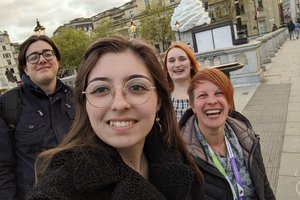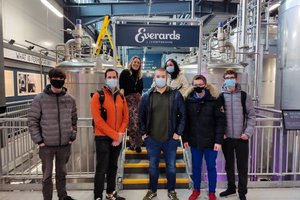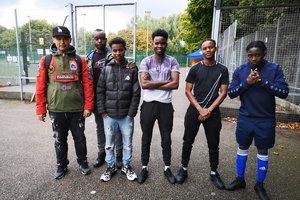Creators not consumers: Our commitment to participation
At Leicestershire Cares, we strongly believe that the lived experience and voice of children and young people should be the central guide to our work. Participation is at the heart of our Power to Change approach.
We aim to follow a co-production model where children and young people are actively encouraged and supported to “create” rather than just “consume” ideas for projects, policies and services.
We are firmly committed to a children’s rights approach. We believe the Children Act and UN Convention on the Rights of the Child provide positive frameworks for our co-production approach and we support the “no one left behind” ethos of the sustainable development goals.
We also strongly believe in an asset-based approach to community development that recognises and draws on the strengths of the community. We see potential and solutions rather than blocks and problems.
Our approach to participation
Leicestershire Cares takes a rights-based approach to participation. To help us do this, we use the Lundy Model of Participation. This model gives four key stages of participation that need to be met under Article 12 of the UNCRC. These stages are: space, voice, audience, influence.
We have embedded these stages into each of our circles of power in our Power to Change approach: Power Within, Power With and Power To.
You can read more about our approach in our participation strategy, which we have developed in partnership with young people, staff and partners.
What does this mean in practice?
In practice, our commitment to participation means we will involve young people in the development and delivery of our organisation and work in a range of ways. This includes:
- Being creative and adaptive, responding to the needs of individual young people and recognising there are no "one size fit all solutions". Children and young people are diverse and need support which recognises this.
- Working with young people to create a range of models, methods and tools that enable them to ensure their lived experience and voices shape the development, delivery and evaluation of our work.
- Involving young people in the recruitment of our staff.
- Making a commitment to co-production an integral part of our team's culture and ensuring training and support is available for staff to develop their knowledge, skills and confidence in co-producing work with young people.
- Involving young people in promoting the learning arising from our work.
- Constantly sharing good practice and learning from the experience of others.
Working with partners
Our commitment to participation goes beyond our own service. We will seek to work in partnership with funders and organisations who share this commitment. We will also promote participatory approaches across our partnerships and encourage organisations to listen to and act on the voiced concerns of young people.
We will continually ask these questions of any work we are involved in:
- How have children and young people been involved in developing this work?
- How are children and young people involved in delivering the work?
- How are children and young people involved in monitoring and reviewing the work?
We also know that many businesses are committed to supporting children and young people and are keen to engage with them. We will continue to work with the business community to help them listen and learn from children and young people on a whole range of issues.
An ongoing journey
We see a participatory approach as a journey and not an end point. We operate in a complex and ever-changing context in which we have to be creative and agile.
We know some ideas will work, some will fail and some will work sometimes or for a while. This is why we are committed to ongoing reflection and learning with our young people and stakeholders and we strongly believe our only real mistake is not to learn from our mistakes.


